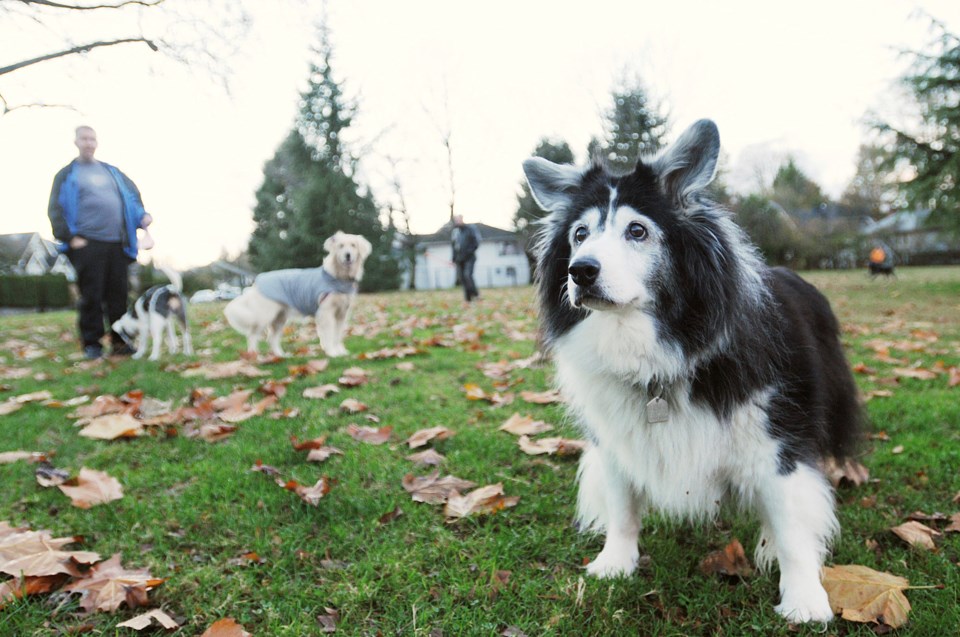While the sheer volume and regulatory issues at play may be daunting, it’s the Vancouver Park Board’s hope that dogs will soon get their day in the sun.
The board announced plans late last week for an ambitious, year-long consultation that aims to cater to canines and their owners across the city.
Specifically, the plan seeks to better understand how to share parks, green spaces and other amenities with a burgeoning dog population in a city teeming with growth and density concerns.
The first phase of the consultation process, called People, Parks and Dogs: A Strategy for Sharing Vancouver’s Parks, is on now and concludes Oct. 14. Further rounds of public consultation will follow and a final report will go before the park board next spring.
“It’s about sharing space because we are a city that’s growing up,” Vancouver Park Board chair Sarah Kirby-Young told the Courier Monday. “We’ve got a finite amount of land and we’re densifying. Green space and parks kind of become people’s back yards so we have to find a way to coexist and share the space.”
Statistics provided by the park board illustrate the massive task ahead: there are 230 parks in the city, all of which permit dogs on leash. There are 36 off-leash areas, six of which are fenced and three are beaches.
The most striking stat, however, suggests less than 15 per cent of the 145,000 dogs in the city are licensed.
Those numbers are a particular sticking point for a pair of residents’ groups contacted by the Courier.
The group known as West End Families in Action (WEFA) is concerned about the density crunch in its part of the city and questions the validity of a planning process that accounts for so few licensed dogs.
As of now, there are three off-leash parks in the area: at Nelson Park, near the Stanley Park tennis courts and at Sunset Beach near the Burrard Street Bridge.
“With an estimated less than 15 per cent of dogs licensed in the city, it is difficult to make these planning decisions,” said group member Kathryn Gibbons. “Space is at a premium in the West End.”
The same holds true for Grandview Woodland Area Council members, of which there are more than 1,000.
“There seems to be no direct benefit to a dog owner by licensing their dog,” said council chair Dorothy Barkley. “It just allows animal control another vehicle to stop, identify and harass responsible owners who have taken the time to license their pet.”
Barkley suggested amenities for dogs in her area are also lacking, as the nearest facilities — New Brighton, Burrard View, Strathcona or Trout Lake — are at least a 40-minute walk for nearby residents.
“The city’s mandate is that dog off leash areas be accessible and a walkable distance for dog owners — a 40-minute walk is neither of those for anyone,” she said. “Instead, to get to these off-leash spaces, one drives there, which adds another car to the roads.”
Kirby-Young conceded the licensing numbers are problematic and that finding consensus on how to best cater to dogs in a large urban setting is a daunting task.
“I don’t know if it’s a lack of awareness or lack of desire, but I can tell you that it will be really helpful for us if that percentage was higher,” she said. “It’s a bit like doing the census as a resident — it gives government great information in terms of allocation funding for all sorts of services. The principle behind licensing is similar, because it gives you good data on where those dogs are and in terms of locating dog parks.”
Residents can take part in the consultation both online and in person, including at a series of drop-in open houses throughout the city.
For more information, see vancouver.ca/parks-recreation-culture/people-parks-dogs-strategy.
[email protected]
@JohnKurucz



